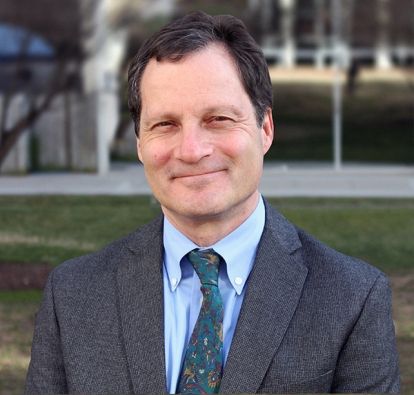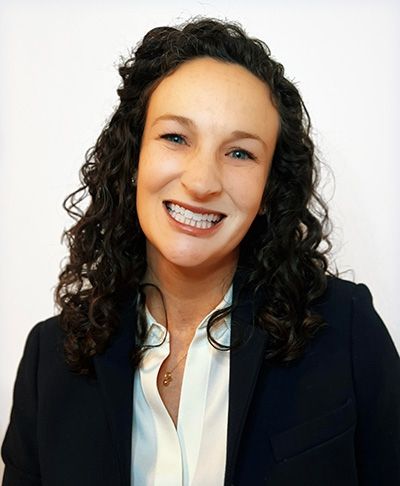Two University of Virginia School of Law alumni — Jonathan Lowy ’88 and Emily Ponder Williams ’14 — will be honored for their public service work at the eighth annual Shaping Justice conference Feb. 2.
Lowy, who founded the nonprofit Global Action on Gun Violence after nearly 25 years at the gun violence prevention organization Brady, will receive the Shaping Justice Award for Extraordinary Achievement.
Williams will receive the Shaping Justice Rising Star Award. She is the managing attorney of the Neighborhood Defender Service of Harlem’s Civil Defense Practice, where she has a front-row seat witnessing the intersection of poverty, criminal law and access to housing — the topic of this year’s keynote address.
The awards will be presented at 12:30 p.m. in Caplin Pavilion (full schedule). Alec Karakatsanis, founder of Civil Rights Corps, will deliver his keynote remarks on “The Punishment Bureaucracy and the Failure of ‘Criminal Justice Reform’” at 3:30 p.m. Between those two bookends, expert panels will address issues related to the effort to decriminalize poverty. The event is open to the Law School community only with advanced registration.
Jonathan Lowy ’88
First at Brady and now at Global Action on Gun Violence, Lowy has been litigating and winning lawsuits aimed at stemming gun violence and firearms proliferation for more than 25 years.
After graduating from Harvard College and enrolling at UVA Law, Lowy knew he wanted to work as a public interest lawyer, and was attracted to a number of pressing issues, including Native American law and civil rights, and the environment. To make that career a reality, he first joined a large Washington, D.C., firm as a litigation associate. He gained litigation experience through pro bono work and saved money for his future career by making frugal wardrobe and lunch choices.

Six years into his career, he hung out his own shingle as a civil rights and personal injury litigator. Three years later, Dennis Henigan ’77 hired him to try lawsuits against the gun industry at the nonprofit Brady, named for James Brady, the White House press secretary who was hit by a bullet intended for President Ronald Reagan in 1981. Though Brady never walked again, he and his wife, Sarah, became advocates for gun control.
Lowy later became vice president and chief counsel at Brady, which has gone by several different names over the years.
“When I began at Brady over 23 years ago, we were bringing some creative, trailblazing lawsuits, but we weren’t winning many of them,” Lowy told UVA Law in an interview in 2021. “Over the years, I’ve seen us win more and more to the point where we have now established a body of law around the country that gun manufacturers, distributors and dealers can be liable to victims.”
Firearms makers and dealers argue that they are largely immune from what happens after a gun is sold — under the federal Protection of Lawful Commerce in Arms Act, or PLCAA — but Lowy has helped win more than $100 million for gun violence victims in cases brought in more than 40 states. His work has also reformed gun industry practices and helped shut down “reckless” gun dealers, Lowy said.
“The gun industry […] did not account for the legal creativity and utter tenacity of Jon Lowy,” Henigan said. “Time and again, Jon has achieved justice for gun violence victims against long odds. Jon is a modest, unassuming lawyer, with a natural instinct for the jugular.”
In 2020, Lowy won the first state appellate decision holding PLCAA unconstitutional in Gustafson v. Springfield Armory, now on appeal to the Pennsylvania Supreme Court. Years earlier, he facilitated the first settlement in which a gun manufacturer paid for a criminal shooting.
“For families that have lost a loved one and lost faith in the system, it can be a life-changing experience to hold the manufacturer liable for that death,” Lowy said in an interview this year.
In 2022, Lowy created a new nonprofit, Global Action on Gun Violence, which focuses on stemming the flow of American guns into Mexico, the Caribbean and the Central American drug trade.
GAGV works closely with the international community to reform gun industry practices using impact litigation, human rights proceedings and policy advocacy. GAGV is representing the government of Mexico in the first lawsuit brought by a sovereign nation against the gun industry, and on Monday — after arguments from Lowy in July — a federal appeals court ruled that the $10 billion lawsuit can proceed.
“I founded GAGV because we need new, bold strategies to stop gun violence in the U.S. and other countries, and to stop its spread around the world,” Lowy said. “International action can bring powerful pressures that can end the U.S. gun violence epidemic and keep it from becoming a global pandemic.”
Lowy has published numerous articles on gun issues, including “The Right Not To Be Shot,” and he appears frequently on TV and other media.
Emily Ponder Williams ’14

Williams earned the Rising Star award for her contributions to the dignity and economic well-being of indigent criminal defendants.
As the managing attorney for the Harlem-based Neighborhood Defender Service’s civil litigation practice, Williams has played a pivotal role in shaping and expanding the practice to address the myriad civil consequences — including deportation, housing loss, employment discrimination, property forfeiture and more — faced by clients involved in the criminal and family court systems.
“When our clients are involved in those systems, it can trigger a whole slew of destabilizing consequences — loss of housing, loss of employment, loss of property, loss of public benefits — among many other things,” Williams said. “People on my staff still come up with client issues that I’ve never heard of before.”
She was once a rising star, of sorts, in the journalism world. When Time magazine selected her as a reporter for its kids’ magazine, she thought she saw her future career laid out before her.
“Yep, that speed-skating article really made waves,” she said, chuckling.
As she finished her bachelor’s in the University of Missouri’s prestigious journalism program, she was pretty sure print magazines — her specialty — were all but dead, and she wanted more effective tools to improve others’ lives.
“As I thought about it, what I wanted the most was to be able to expose and give voice to people experiencing injustice, and I felt limited in my options to do that from a journalistic perspective,” Williams said. “I wanted to be in more of an advocacy role where I could really call out and say, ‘This is not right, this is not fair,’ and then do something about it.”
In her final semester at UVA Law, she was named a Robert F. Kennedy ’51 Public Service Fellow, an award funded by the Law School, and met Robin Steinberg, the then-executive director of Bronx Defenders, at an event at UVA Law. The two hit it off.
“I was like, ‘I really want to come work for you and I have this fellowship option to pay for it,’” Williams said. “She said that would be amazing because they had an opening in their civil practice, which was a new and growing area.”
After graduation, Williams and her husband, John Williams ’14, chose Brooklyn to be close to his job as a public defender at the Legal Aid Society. When another colleague left the Bronx Defenders to start a civil practice at Neighborhood Defender Service, she followed to help develop and grow the practice in Manhattan.
Williams said it can sometimes feel like an uphill battle in a system and culture that has “long accepted the narrative that these individuals are less deserving of rights.”
“We are constantly pushing against the status quo that it’s okay to strip people of their rights, of their ability to support themselves and their families, and to have a stable home because of an arrest — or sometimes just an accusation,” Williams said.
Before she became the managing attorney for Neighborhood Defender Service’s civil section, Williams found fulfillment in small victories — such as saving a client from eviction — and in the intense connection a lawyer may develop with a client when the lawyer is the one person to say, “I know you are worth much more than this system, this label and this situation have told you you’re worth,” she said.
Now in a management role, she delights in being a mentor to her staff attorneys doing the direct representation.
“When we find a way to fight this together, it’s the best feeling in the world,” Williams said.
Founded in 1819, the University of Virginia School of Law is the second-oldest continuously operating law school in the nation. Consistently ranked among the top law schools, Virginia is a world-renowned training ground for distinguished lawyers and public servants, instilling in them a commitment to leadership, integrity and community service.


